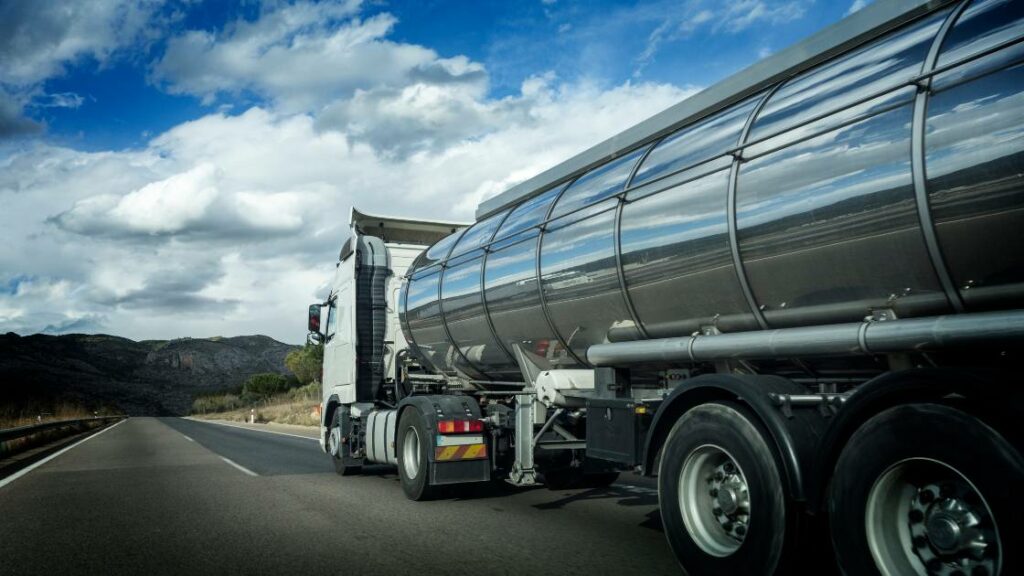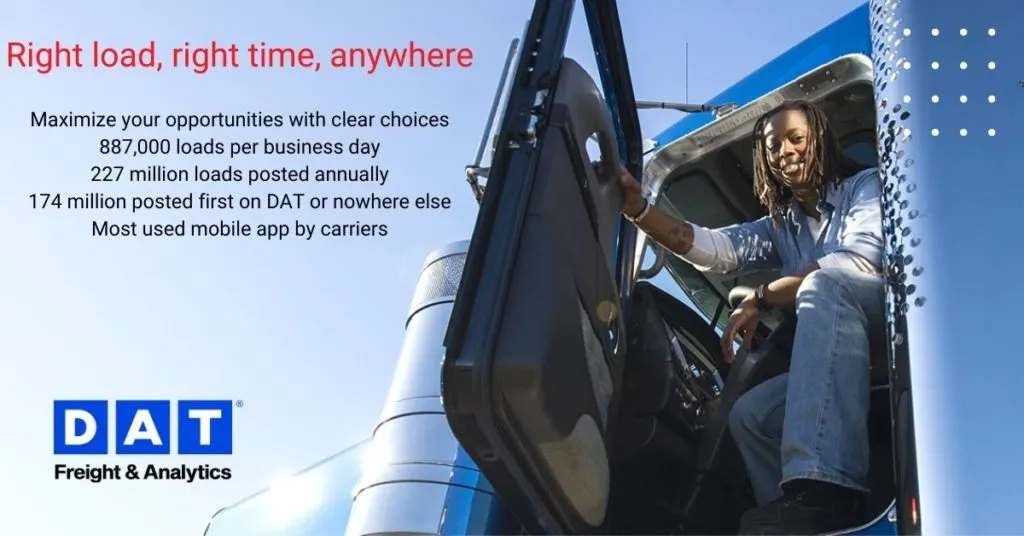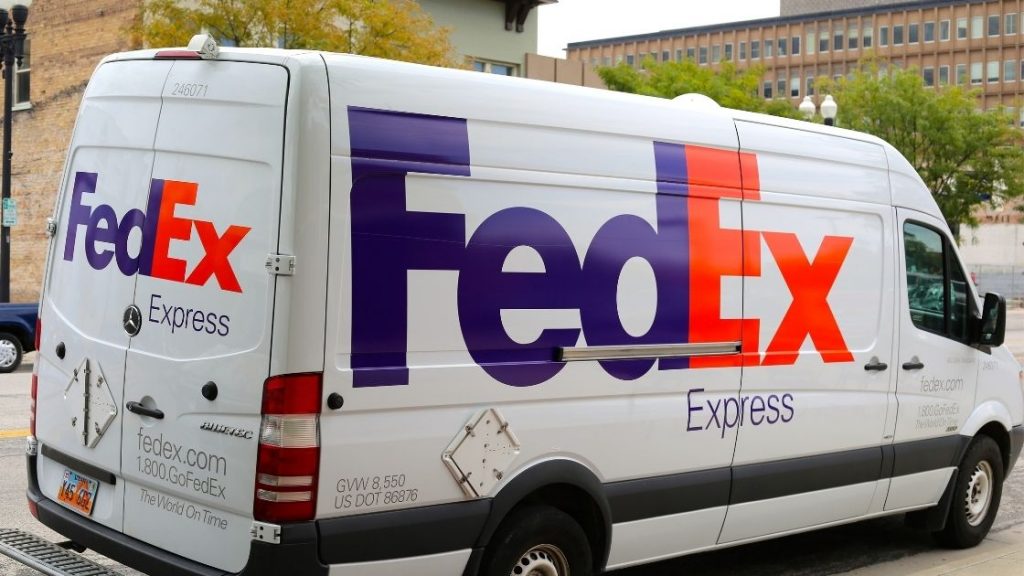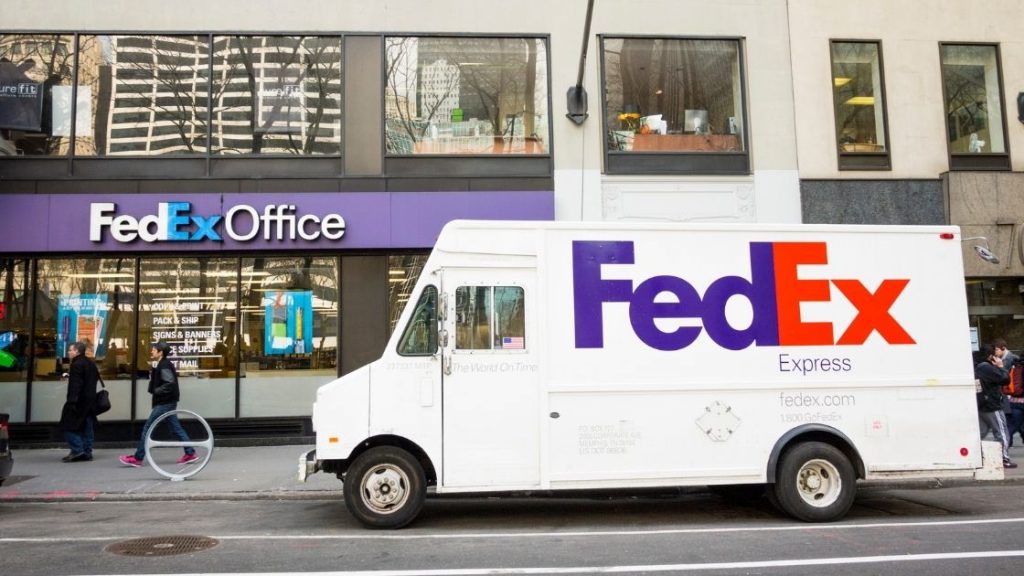If you are looking to purchase and use a tank trailer for your trucking business, but need a little help to understand your options and find the perfect one for you, you’re in the right place.
In this article, I am going to answer some of the key questions you might have around tank trailers, including what they are, what types are available, what they are used to carry, price ranges, and the best options for finding loads and making money with your tank trailer.
Ok, we’ve got a lot to cover, so let’s get into it!
This post may contain affiliate links. If you click on a link and complete a transaction, I may make a small commission at no extra cost to you.
The information contained in this post is for informational purposes only. It is not a recommendation to buy or invest, and it is not financial, investment, legal, or tax advice. You should seek the advice of a qualified professional before making any investment or other decisions relating to the topics covered by this article.
What is a Tank Trailer?
Ok, if you’re here, you’re probably already familiar with what a tank trailer is, but here’s the quick definition:
A tank trailer is a trailer with a cylindrical shaped body that is suitable for transporting gases or liquids as well as certain dry bulk items.
To be more precise, you can use tank trailers to transport chemicals, oil, gas and even food items, such as milk or water in bulk.
As you probably know, they are most easily identified through their cylindrical shape and you can often spot them at gas stations. I believe a picture is worth a thousand words, so here’s one to clear up any confusion on the point.

What Are the Various Types of Tank Trailers?
First, the Governmental Categories
Tank Trailers can fall into a number of categories outlined by the Department of Transportation. The most common include TC 406/DOT 406, TC 407/DOT 407 and TC 412/DOT 412 tankers.
- TC 406 tankers are oval shaped and usually low pressure (around 3 psi). They are often used to transport petroleum products and chemicals, but can be used to haul other items, such as water or milk.
- TC 407 tankers are usually chemical tankers (more on that below) that are used to transport (you guessed it) chemicals. These include mildly acidic, toxic or corrosive liquid products, but can be used to transport many other types of materials.
- TC 412 tankers are usually used to haul highly corrosive materials, which often have special lining to protect against erosion.
Now, the Major Categories of Tank Trailers
Governmental categories are fine, but there are also industry-defined subcategories within each of them, so let’s talk about all of the major versions of tank trailers that are out there.
The Chemical Trailer
This is a tank trailer that typically made from stainless steel and is most commonly used in the chemical transportation industry (often, it’s just called a stainless steel tanker). Because of its use, it may also be referred to as a DOT 407 tanker (obviously to line up with the DOT category). As mentioned above, this tank trailer is used to transport mildly corrosive chemicals and could be the trailer of choice for many hazmat carriers. Note that for truly corrosive products, you may need something more resilient, which we’ll get to now.
The Corrosives Trailer
Corrosives liquid bulk trailers, sometimes called TC 412 trailers are used to transport highly corrosive liquids. These tanks fall into two major categories: (i) a rubber lined carbon or stainless steel tank, or (ii) an FRP Trailer, which stands for fiberglass reinforced plastic.
Hot Products Tank (Asphalt Tanks)
As the name implies, these tankers can be used to transport products that are sustained at high temperature, such as asphalt or hot sulphur.
Food Grade Tank
These are tanks that are suitable for hauling food items. They are sometimes called sanitary stainless tanks are can carry food, milk, water and other bulk items. You can also use other types of tank trailers for this purposes, such as your standard 407 tank if they have a food grade wash before loading.
There are further variations of this tank, which can include kosher tanks, which will require additional processes (special wash, inspection, and blessing) to qualify. For items like milk, you will need an insulated tanker that regulates the temperature to prevent spoilage.
Petro-Chemical Tanks
This trailer is used to hail crude oil and is often made from aluminum.
Petroleum Tanks
Again, this type of tank trailer is also often made from Aluminum, but is used to transport a variety of petroleum products. They normally fall under the DOT 406 category. They are smaller and easier to navigate in urban settings for better delivery of fuel to these areas.
Pneumatic Tanks
These tanks (also known as dry bulk tanks) have a pump and blower that empty the contents of the tank using forced air. They are often used to transport materials that require this type of unloading process, such as building materials, dry food, etc.
Agricultural Tanks
These trailers are used to transport pesticides or fertilizers to farms and other agricultural sites.
Multi-Compartment
A multi-compartment tank trailer is not a separate category by itself. It simply applies to any tank trailer that has multiple compartments, so that you can haul different types of loads in a single go.
How Much Does a Tank Trailer Cost?
The cost of a tank trailer is going to depend on a variety of factors, including type, size, age and brand. For example, I just saw a new 2023 Jarco 10,600 gallon liquid tanker on the market at truckpaper.com for $169,000. But a 10 year old (2013) Keith Huber Vacuum Trailer was being offered on that same site for $295,000.
So it really depends on what you are looking for.
Of course, like with most things, buying used is going to save you some money, but from what I can tell, the real price differentiators are going to be capacity (size) and type.
Here are some examples of different types of tank trailers that I found for sale on that website:
- 2014 Westmor Industries Gas Tank Trailer with 11,500 gallon capacity ($152,000)
- 2024 J&L Dry Bulk Vacuum Trailer (Food Grade) with 1636 cubic feet cap. ($158,000)
- 1997 J&L Pneumatic Dry Bulk Trailer with 905 cubic feet cap. ($150,000)
- 2024 Polar Petroleum Tank with 9,500 gallon cap. ($129,000)
- 2023 Polar insulated DOT 407 Tank with 5,000 gallon cap ($109,000)
As you can see, a wide range of prices exist. I didn’t even go to the really low end, but so you get a flavor of what’s out there, you can get a twenty year old Galyean vacuum tank trailer with 5,460 gallon cap. for $27,000.
Best Ways to Make Money with a Tank Trailer
Obviously, the most profitable way to make money with a tank trailer is to use it to haul profitable loads. One of the best ways to get consistent loads is by using load boards. Now you do have to pay money in most cases to get access to the best loads, but it may be worth it to find reliable work.
When it comes to load boards, DAT is a clear market leader, with approximately 1.37 million loads posted daily (including plenty of tanker loads ).
They are admittedly known for their huge selection of loads for dry vans, reefers and flatbeds, but they also have a respectable offering of loads for tankers, including aluminum, intermodal and steel tankers.
To filter for these types of loads, you select “T” under “Truck Type.” Obviously, “T” stands for Tanker. If you want to further filter by the three different categories of tankers that DAT supports, you can sort by “TA”, “TN”, and “TS”, which stand for Tanker Aluminum, Tanker Intermodal and Tanker Steel, respectively.
Due to their immense size and scope, DAT can offer leading edge tech and info, including unlimited searching, instant alarm match notifications, broker credit scores, days to pay, market rates, mileage routing and much more.
Despite their dominant place in the market, I think their pricing is reasonable and it’s actually in line with other premium paid load boards. As of this writing, DAT offers the following plans:
- DAT TruckersEdge: Standard ($45/month) – includes unlimited truck posts and load searches, load match alarms, month to month billing, mileage and routing features, broker credit data and load counts by state.
- DAT TruckersEdge: Enhanced ($85/month) – includes all standard features plus the ability to call and search for loads (for when you are on the road), and average rates for lanes you are searching (30 day).
- DAT TruckersEdge: Professional ($135/month) – includes all Enhanced features plus average rates for past 15 days, access to Tri-Haul (which suggests higher paying routes with triangular route suggestions), DAT Assurance (which helps you collect past due accounts), and North American database (which includes Canadian loads)
There are higher tier plans available for companies with multiple trucks (Power Select Carrier) and multiple dispatchers (Power Office Carrier).
I have an affiliate relationship with DAT, so if you use my link, you will get access to a free 30 day trial for their plans.
In short, you will get to use this industry-leading load board for a full month for free. Please note that this trial offer is only for new subscribers.
As far as cancellations go, you have no long-term commitments, so you can cancel your subscription at any time.
Simply click on the banner below to take advantage of this no-risk offer.

Of course, there are plenty of other load boards and other options out there. If you want a fuller discussion of those options, check out my article on the best tanker load boards.
Another option that is a bit off the beaten path is to rent out your tank trailer. You can do this going on coop.com. If you want to learn more about this option, check out my article here or YouTube video on this option below. Note that both of them focus on renting out your truck, but the strategy works for renting out your trailer as well.
Conclusion
So there you have it – a comprehensive guide to tank trailers and some practical tips and resources on how to make money using them. Hope this has been helpful and happy trucking!

